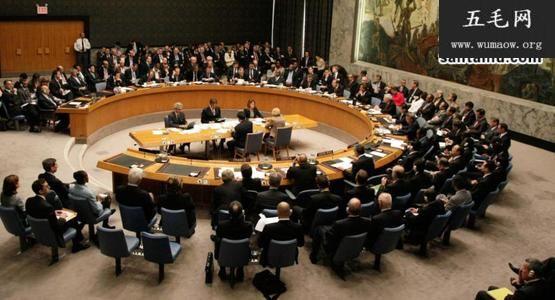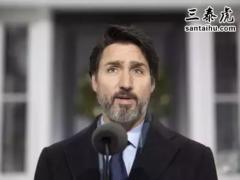美版知乎:印度代表着全世界近五分之一的人口,为什么在联合国没有否决权
Why doesn't India have veto power in the United Nations when it represents nearly 1/5 of humanity?为什
Why doesn't India have veto power in the United Nations when it represents nearly 1/5 of humanity?
为什么印度代表着全世界近五分之一的人口,却没有联合国的否决权?
以下是Quora读者的评论:
Ashik Gosaliya, I have been working as a political Analyst with a Political.
Should I say, because this 1/5 population is made of emotional fools having no understanding of geopolitical reality and always fails in strengthening the hands of the government of the day?
Any nation is as much stronger as pragmatic it's population. Compared to US, Russia, China, Iran & Saudi Arabia, Indian citizens are less practical & more emotional in nature wrt international relations & Foreign Policy reason why despite having 2nd largest population in the world they do not exert the same influence as US or China does.
The part of the problem lies in the history of independent India as well. It's world known fact that India was offered a seat on UN security council ahead of China in 1952. It's utter idiocy of Jawaharlal Nehru, who gave up the honor in favour of China anticipating friendly relations with China.
Thence how India has been devoid of say in international decision making despite 1/5 population and China, despite having non-democratic govt has all the privileges India should be entitled of.
It's quite evident that the real politicking or international Diplomacy can't be based on the strength of the population but practical & pragmatic resolve of the political class as well as citizens of the nation.
我是否应该说,因为这五分之一的人口是由不了解地缘政治的情绪傻瓜组成的,没办法加强印度政府的实力?
任何一个国家的人民都是实用主义者。与美国、俄罗斯、中国、伊朗和沙特阿拉伯相比,印度公民在国际关系和外交政策方面不那么实事求是,更为情绪化,这也是尽管印度人口在世界上排名第二,但其影响力却不如美国或中国的原因。
问题的部分还在于印度独立的历史。众所周知,印度在1952年曾早于中国,获得联合国安理会提名过席位。可贾瓦哈拉尔·尼赫鲁完全是个笨蛋,他放弃了这项殊荣,转而支持中国,期待与中国保持友好关系。
因此,尽管印度有1/5的人口,但印度在国际决策中却没有发言权,没有享有印度应该享有的所有权力。
很明显,真正的政治或国际外交不是建立在人口实力的基础上,而是建立在政治阶层和国家公民的务实决心之上。
Without getting into Hindu-Muslim politics, I am forced to believe that Indians are far more less inclined towards nationalism as much as Americans & Chinese citizens. Therefore, India has failed to build the influence that it deserves to build.
From the day one, Prime Minister Modi has been trying to build an Indian reputation of global level but has been curtailed by the opposion leaders for basted interests.
If indian people won't strengthen the hands of Narendra Modi, who else do you expect to do, the Saudies, the Chinese, the Americans, or the Russians?
India has been vocal about UNSC reforms but has been pushed back by US and China because, we may be 1/5 of the world but have no greater than 1/20th influence in the world because we are not progressing at the rate we should.
It's very easy to find a fault Witt the Govt of the day but Indian electorates are as much responsible for India not been able to exert influence.
I'm expecting UNSC reforms by 2020 end as more countries are willing to listen to India at international stage and are ready to support India taking leadership role on many issues.
在不涉及印度教和政治的情况下,我不得不相信印度人比美国人和中国人更没有那么倾向于民族主义。因此,印度未能建立起它应该占据的影响力。
从一开始,莫迪总理就一直试图建立印度在全球范围内的一流声誉,但因利益受损而被反对党领导人削弱了。
如果印度人民不支持纳伦德拉·莫迪,你们还指望谁呢,是沙特人,中国人,美国人,还是俄罗斯人?
印度一直对联合国安理会的改革大声疾呼,但被美国和中国驳倒,因为我们也许占据了世界五分之一的人口,但影响力却不超过二十分之一,为我们没有以应有的速度进步。
在当今的时代,要找政府的失误很容易,但印度的选民同样要为印度未能施加影响力而负责。
我预计联合国安理会的改革将在2020年结束,因为更多的国家愿意在国际舞台上倾听印度的声音,并准备支持印度在许多问题上发挥领导作用。
Vineet Kumar, Proud Indian. Editor-in-chief at AmarJanak.com
“Position is not for those who demand it but for those who deserve it”
Truth is after world War 2 India emerged as the world's fourth-largest industrial power with increased political, economic and military(At the peak of the war 25lac Indian soldier were fighting all over the world for allied forces But at that time it was under the rule of British .
So when India got its freedom and became republic, It was offered the permanent seat at UNSC which comes with VETO power through different channel on different time but Nehruji decline the offer citing PRC (people's republic of China) interest should be considered first. It was major policy lapse on his part.
Now for some years India is trying to get the Seat but unable to achieve the objective due to following reasons
“地位不是给那些提出要求的人,而是给那些应得的人”
事实是,在第二次世界大战之后,印度成为世界第四大工业国,政治、经济和军事实力不断增强(在战况最激烈的时候,印度士兵曾为盟军在世界各地作战,但当时印度处于英国的统治之下)。
因此,当印度获得自由并建立起共和国时,它在联合国安理会获得了常任理事国的提名席位,可在不同的时间通过不同的渠道拥有否决权,但尼赫鲁吉拒绝了这一提名,认为首先应该优先照顾中国的利益。这是他在政策上的重大失误。
几年来,印度一直试图获得这一席位,但由于以下原因未能实现这一目标:
1. P-5 countries don’t wanna share the power :
Everyone thinks China is only the hindrance in our path, but US, UK, France or even Russia (Agree they are the closest powerful friend but Russia is different from the Soviet Union ) do not want to give India a seat because they don’t wanna share the power. example :
Basically, International Diplomacy works on “give and take”. So we will get the chance.
2) Japan, Germany and Brazil:
These countries too want a seat for themselves and they are giving a good fight.
3)India demands 4 seats not one:
Strange ?
I know but that’s the truth . India being part of G4(Japan, Germany,India and Brazil) countries want 4 seats ,one for each G4 member. Therefore it needs to change the UN charter and reform the UNSC which is also one factor of delay .
But Our PM(Modiji) is doing everything to achieve the same and I believe we will achieve it soon because “We Deserve It “
1.五常国家不想让渡权力:
每个人都认为中国只是我们前进道路上的绊脚石,但美国、英国、法国甚至俄罗斯(认同他们是最亲密的强大朋友,但俄罗斯并不同于苏联)不想给印度席位,因为他们不想分享这种权力。举个例子:
基本上,国际外交遵从“礼尚往来”的原则。所以我们会有机会的。
2) 日本、德国和巴西:
这些国家也想为自己争取一个席位,他们正在进行精彩的竞争。
3) 印度希望获得4个席位,而非1个:
奇怪吗?
我知道这有点奇怪,但正是事实。作为G4成员国(日本、德国、印度和巴西),印度想要4个席位,每个G4成员国各获1个。因此,它需要改变联合国宪章,改革联合国安理会,这也是久拖未决的一个因素。
但我们的总理(莫迪)正在尽一切努力实现这个目标,我相信我们很快就会实现,因为这是“我们应得的”。
Dhiraj Singh Rathore, A regular follower of political developments.
When one talks of World Politics, it is not much different from the coalition politics. For India to get a VETO power in UN voting, it needs to secure a permanent seat in the UNSC which is restricted to 5 nations only. India enjoys overwhelming support of majority of the United Nation member-states of which the African Bloc is the biggest support. The reason is that India has established a good reputation in international arena of a peace-loving nation with Dovist foreign policy. But to get a permanent seat at UNSC that is not enough, a state needs to have backing of the existing 5 permanent members. Russia, UK, U.S.A and France, because of good bilateral relations with India Rhetorically support it but there is no guarantee that they would actually do that in UN. The reason is simple - when it comes to sharing, everyone is selfish. When 5 people are to enjoy a cake, they will never want a 6th person to have a bit of it.
Second and major problem for this is the Asian Power-Politics. First, India has major disputes with Pakistan and minor ones with China and both are good allies. Pakistan is of major interest to China because through it China will have access to the middle-east, Africa and Europe via Gwadar port in Karachi. China will never try to disappoint an economically beneficial ally.
Secondly, Japan and China are not in good terms and Japan is an aspiring UNSC permanent member candidate among the G-4(India, Japan, Brazil, Germany). India is in good relations with Japan and both mutually support each others bid for UNSC permanent seat. China has made it conditional for India either to take China's support or support Japan.
Thirdly, China and India are the emerging Asian power in world economy. India is considered a future competitor of China. China will never want a neighbor which will be equally powerful in world politics via UNSC permanent seat as well as be a tough economic competitors.
当我们谈论世界政治时,与联合政治并没有多大区别。印度要想在联合国投票中获得否决权,就需要在联合国安理会获得一个常任理事国席位,这个席位目前只限于5个国家内。印度得到联合国大多数会员国的压倒性支持,其中非洲集团是最大的支持者。原因在于,印度在国际舞台上树立了一个奉行温和外交政策、爱好和平的国家的良好形象。但这对于在联合国安理会获得常任理事国席位还不够,印度需要现有5个常任理事国的一致支持。俄罗斯、英国、美国和法国,因为与印度的良好双边关系,在口头上支持印度,但并不能保证他们会在联合国会真正这样做。原因很简单——说到分享权力,每个人就都会相当自私。当5个人享用同一个蛋糕时,绝对不会想让第6个人也来分食一口。
第二个问题,也是个主要问题,就是亚洲的强权政治。首先,印度与巴基斯坦有重大争端,与中国有轻微争端,这两国是好盟友。巴基斯坦是中国最感兴趣的国家,因为通过巴基斯坦,中国可以借由卡拉奇的瓜达尔港进入中东、非洲和欧洲。中国决不会让一个有经济利益的盟友失望。
其次,日本和中国关系不好,日本是四国集团(印度、日本、巴西、德国)中对安理会常任理事国候选国席位志在必得的国家。印度与日本关系良好,两国都相互支持对方争取安理会常任理事国席位。中国则给印度出了难题:要么接受中国的支持,要么支持日本。
第三,中国和印度是世界经济中新兴的亚洲大国。印度被认为是中国未来的竞争对手。中国永远不希望出现一个通过拥有联合国安理会常任理事国席位而在世界政局中同样强大、同时也是强硬的经济竞争对手的邻国。
Sailendra Wadhwani, I know about International Relations.
Addition of any new member as permanent member would require reforming Security Council.
The problem of reforming the Security Council is rather akin to a situation in which a number of doctors gather around a patient and all agree on the diagnosis, but they cannot agree on the prescription. The diagnosis is clear: the Security Council (SC) reflects the geopolitical realities of 1945 and not of today.
新增任一常任理事国都需要改革安全理事会。
改革安全理事会的问题跟如下情况类似:许多医生聚集在一个病人周围,大家都同意诊断结果,但无法就药方达成一致。诊断是明确的:安全理事会反映的是1945年的地缘政治,已非今时之需。
- When the UN was founded in 1945, the Council consisted of 11 members out of a total UN membership of 51 countries; in other words, some 22 percent of the member states were on the Security Council. Today, there are 192 members of the UN, and only 15 members of the Council—fewer than 8 percent. So many more countries, both in absolute numbers and as a proportion of the membership, do not feel adequately represented on the body.
- The current composition of the Council also gives undue weight to the balance of power of at least a half century ago. Europe, for instance, which accounts for barely 5 percent of the world's population, still controls 33 percent of the SC
- The Council's five permanent members (the United States, Britain, France, Russia, and China) enjoy their position, as well as the privilege of a veto over any Council resolution or decision, by virtue of having won a war sixty-six years ago.
1.1945年联合国成立时,安理会由51个成员国中的11个成员国组成,也就是说,约22%的成员国是安理会成员。今天,联合国有192个成员国,安理会只有15个成员国,比例不到8%。成员国如此之多,无论是在绝对数量上还是在比例上,都未能获得足够的代表性。
2.安理会目前的组成也过分强调了至少半个世纪前的权力平衡。以欧洲为例,它只占世界人口的5%,仍然控制着33%的席位。
3.安理会五个常任理事国(美国、英国、法国、俄罗斯和中国)由于六十六年前打赢了一场战争而享有了席位和对安理会任何决议或决定的否决权。
Sushant Kishore, Annales Universitasis Apulensis: Series Historica
India was offered a permanent seat in 1955. the UN was established in 1945 with 5 permanent members. It wasn't impossible to modify the charter a little and make some room for the Republic of India (1950)...It still isn't.
The permanent seats are not reserved only for founding members....with proper recommendation modifications are possible. But i don't see the use. UN is still, for all practical purposes, US and adding another puppet to sit on the pedestal wouldn't have made much difference.
Nehru denied it.... he also denied having got any such offer.
印度曾于1955年获得常任理事国席位提名。联合国成立于1945年,有5个常任理事国。对宪章稍加修改并为印度共和国(1950年)腾出一些空间并非不可能……但目前仍然不太可能。
常任理事国席位并非只为创始成员国保留……经适当的建议进行修改也是可能的。但我觉得没用。联合国仍然是,就实际用途而言,只是美国外加一个傀儡,不会有太大的不同。
尼赫鲁拒绝了提名席位。。。。他还否认说不曾有过这个提名。
Rajiv Gusain, Blogger
India is not in the premier group of Security Council.
India doesn’t have veto power because Nehru was so kind to give everything to China instead granting a place in global arena.
Nehru was more interested to make India a second power to China. US who also wanted India instead of China at first place but because of Nehru foreign policy which was to appease China gave such important seat to them and now India is suffering it everyday as China is the only country who uses VETO against us.
And now it’s near impossible to get into Security Council as China will never let this happen at any cost.
印度不是安理会的最初成员国。
印度没有否决权,因为尼赫鲁太善良,把一切都拱手让给了中国,未能在全球舞台上占有一席之地。
尼赫鲁更感兴趣的是让印度成为次于中国的第二大国。美国一开始也希望印度获得席位,而不是中国,但由于尼赫鲁的外交政策是为了安抚中国,所以把如此重要的席位让给了中国,现在印度饱尝苦果,因为他们是唯一会对我们行使否决权的国家。
印度现在几乎没有希望进入安理会,中国不会同意的
Fred Thompson, A single man skunkworks
Consider this: there isn’t even a single member of the UNSC from the southern hemisphere.
That’s half of the planet, and zero representation.
想想看:联合国安理会甚至没有一个来自南半球的成员国。
那可是半个地球呐,无人代表。
John Cate, Freelance Public Relations Specialist, Mount Airy, NC
Because of the way the U.N. Charter was written. Only the five permanent members of the Security Council have a veto--the United States, Russia (formerly the USSR), France, UK and China. The charter was written in 1945, and in 1945, India wasn't even an independent country yet, but still a colony of the British Empire.
There has been off-and-on discussion for many years about adding a few of the world's other most populous and/or economically powerful nations as permanent members, and if that ever came to pass, India would be one of the first countries added, along with Germany and Japan (both of which were omitted for obvious reasons in 1945), and possibly Brazil, Indonesia, and South Korea.
因为联合国宪章是这样规定的。只有五个安理会常任理事国拥有否决权——美国、俄罗斯(前苏联)、法国、英国和中国。宪章写于1945年,而1945年时印度压根还不是独立国家,还是大英帝国的殖民地。
多年来,人们时不时地讨论,要增加几个世界上人口最多和/或经济实力最强的国家加入常任理事国,如果这一点得以实现,印度将是首批新增的国家之一,德国和日本(这两个国家在1945年都因明显的原因被忽略了)也一样,可能还有巴西、印度尼西亚和韩国。
Andrew Roberts
Unlike the P5, it's never hosted, and never topped the Gold medal count at a Summer Olympics, and shown no interest in that direction:
- USA - 1896, 1904, 1912, 1920, 1924, 1928, 1932, 1948, 1952, 1964, 1968, 1984, 1996, 2000, 2004 …, 2012, 2016
- France - 1900
- Great Britain - 1908
- Germany - 1936
- USSR - 1956, 1960, 1972, 1976, 1980, 1988
- China - 2008 (veto aquired 1971)
Nb: Most gold medals in year / home games
与五常不同的是,印度从未主办过夏季奥运会,也从未在奥运会金牌榜上名列前茅,而且对这个领域也毫无兴趣:
1.美国-1896,1904,1912,1920,1924,1928,1932,1948,1952,1964,1968,1984,1996,2000,2004…,2012,2016
2.法国-1900
3.英国-1908
4.德国-1936
5.苏联-1956、1960、1972、1976、1980、1988
6.中国-2008年(1971年被否决)
注:年度/主场比赛金牌最多者
版权声明
我们致力于传递世界各地老百姓最真实、最直接、最详尽的对中国的看法
【版权与免责声明】如发现内容存在版权问题,烦请提供相关信息发邮件,
我们将及时沟通与处理。本站内容除非来源注明五毛网,否则均为网友转载,涉及言论、版权与本站无关。
本文仅代表作者观点,不代表本站立场。
本文来自网络,如有侵权及时联系本网站。
-
1
चाइना में रेडी और ठेले Local shops in china || L...
- 2
- 3
- 4
- 5
- 6
- 7
- 8
- 9
- 10
-
1
चाइना में रेडी और ठेले Local shops in china || L...
- 2
- 3
- 4
- 5
- 6
- 7
- 8
- 9
- 10











